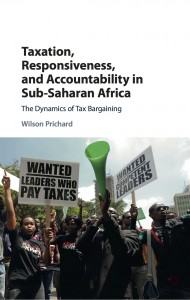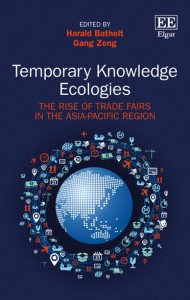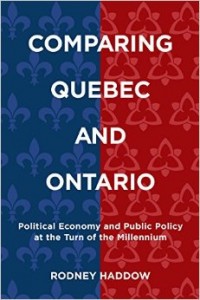
Left and Right
The words “left” and “right” often signal a political divide in debates about topics as diverse as abortion, capital punishment, gun control, social welfare, taxation, immigration, and the environment. Despite claims that political polarization is in decline, its persistence suggests that it is inherent to our society. At the same time, variations in the perception of each side indicate that these labels do not fully capture the reality of ideological disagreement.
In Left and Right, Christopher Cochrane traces the origins of this political language to the very nature of ideology. What is ideology, what does it look like, and how does it manifest itself in patterns of political disagreement in Western democracies? Drawing on five decades of evidence from political scientists, including public opinion surveys, elite surveys, and content analysis of political party election platforms, Cochrane employs a new method to analyze the structure and evolution of the left/right divide in twenty-one Western countries since 1945. He then delves into the central argument of the book – that the language of left and right describes a meaningful, perceptible, and quantifiable pattern of political disagreement that has persisted over time and around the world.
Calling for an adjustment to the way we view Canadian politics, Left and Right opens a window into the world of political ideologies – a world we see every day, but rarely analyze, define, or agree on.

Taxation, Responsiveness and Accountability in Sub-Saharan Africa – The Dynamics of Tax Bargaining
It is increasingly argued that bargaining between citizens and governments over tax collection can provide a foundation for the development of responsive and accountable governance in developing countries. However, while intuitively attractive, surprisingly little research has captured the reality and complexity of this relationship in practice. This book provides the most complete treatment of the connections between taxation and accountability in developing countries, providing both new evidence and an invaluable starting point for future research. Drawing on cross-country econometric evidence and detailed case studies from Ghana, Kenya and Ethiopia, Wilson Prichard shows that reliance on taxation has, in fact, increased responsiveness and accountability by expanding the political power wielded by taxpayers. Critically, however, processes of tax bargaining have been highly varied, frequently long term and contextually contingent. Capturing this diversity provides novel insight into politics in developing countries and how tax reform can be designed to encourage broader governance gains.

The Global Governance of Climate Change: G7, G20 and UN Leadership
Failed efforts, centred in the United Nations, to allocate responsibility for climate change have resulted in a challenge now reaching crisis stage. Kirton and Kokotsis analyze the generation and effectiveness of four decades of intergovernmental regimes for controlling global climate change. They trace the global governance of climate change from its 1970s origins to the present and demonstrate the effectiveness of the plurilateral summit alternative grounded in the G7/8 and the G20.
Topics covered include:
– G7/8 and UN competition and convergence on governing climate change
– Kyoto obligations and the post-Kyoto regime
– The role of the G7/8 and G20 in generating a regime beyond Kyoto
– Projections of and prescriptions for an effective global climate change control regime for the twenty-first century.
This topical book synthesizes a rich array of empirical data, including new interview and documentary material about G7/8 and G20 governance of climate change, and makes a valuable contribution to understanding the dynamics of governing climate change. It will appeal to scholars, researchers, and policy makers interested in the dynamics behind governance processes within the intergovernmental realm.

The G8-G20 Relationship in Global Governance
How have the G8 and G20 summits performed since the G20 leaders began meeting in 2008? What has been the division of labour during their coexistence, and their comparative strengths and limitations? How can the future partnership could be improved to benefit the global community?
The contributors to this volume, edited by Marina Larionova and John Kirton, explain the recent evolution and performance of the G8 and G20 summits and their evolving empirical relationship. They consider the G8/G20 relationship with other actors engaged in global governance, notably the major multilateral organizations and civil society. They assess the summits’ effectiveness and accountability. And they identify, based on this empirical and analytical foundation, how the relationship can be improved for today’s tightly wired world.
Contributors include Peter Hajnal, University of Toronto; Ella Kokotsis, G7 and G20 Research Groups; Dries Lesage, Ghent University; Zia Qureshi, World Bank; Martin Gilman, Mark Rakhmangulov, Andrei Sakharov, Andrey Shelepov and Vitaly Nagornov of the National Research University Higher School of Economics.

Framed: Media and the Coverage of Race in Canadian Politics
Framed is a wake-up call for those who think that race does not matter in Canada. Pushing the field of Canadian political science in new directions, this groundbreaking work combines an empirical analysis of print media with in-depth interviews of elected officials, former candidates, political staffers, and journalists to reveal the connections between race, media coverage, and politics in Canada.
As Erin Tolley shows, overt racism rarely occurs on the pages of Canadian newspapers, but assumptions about race and diversity often influence media coverage. Consequently, as reporters go about selecting which political issues and events to cover, who to quote, and how to frame stories to make them resonate with the public, they give visible minorities less prominent and more negative media coverage than their white counterparts. Further, visible minority politicians are more likely to be portrayed as products of their socio-demographic backgrounds, as uninterested in pressing policy issues, and as less electorally viable. The resulting news coverage weakens Canada’s commitment to a robust, inclusive democracy.
The problem is systemic, but Tolley offers recommendations to politicians, pundits, journalists, and the public for challenging the racial assumptions that underpin news coverage. By drawing attention to the ways in which race continues to matter, this book provides a new foundation for thinking about diversity and equality in Canada.

Temporary Knowledge Ecologies The Rise of Trade Fairs in the Asia-Pacific Region
The development of trade fairs in the Asia-Pacific region has been highly uneven, with large differences between industries, cities and countries. Based on a knowledge perspective, this book is the first of its kind to connect economic growth with the rise and development of trade fairs.
Using country-specific case studies, the contributors identify three key areas of exploration: knowledge generation and transfer processes through trade fairs, interrelationships between industrial and trade fair specializations, and linkages between economic development, industrial policy and trade fair dynamics. They demonstrate that trade fairs in the Asia-Pacific region have evolved from transaction-oriented places to knowledge-based and relational spaces.
Researchers and students of economic geography, political economy and related disciplines interested in exploring the role of the developmental state in the Asia-Pacific region will find this book to be highly relevant. Policy makers and regional planners seeking to understand the role of international trade fairs will also find this to be an insightful study.

Disobeying Hitler: German Resistance after Valkyrie
On July 20, 1944, Colonel Claus Schenk Graf von Stauffenberg was executed in the courtyard of the Third Reich’s military headquarters in Berlin for attempting to assassinate Adolf Hitler. A member of the unsuccessful plot to overthrow the Nazi government — codenamed Operation Valkyrie — Stauffenberg was shot by a firing squad along with his co-conspirators, and their bodies were dumped in a shallow grave.
Most discussions of German resistance during World War II end here, with the failed July 20 plot and the subsequent execution of its leaders. And yet this was far from the last act of disobedience carried out against the Nazi regime, as Randall Hansen reveals in his fascinating new book. Although “resistance” as a commitment to regime change all but ended with Stauffenberg, Hansen shows that if we consider resistance as disobedience — of orders to detonate a bridge, to wreck a factory, to destroy a harbor or to defend a city to the last man — then a very different picture emerges. Resistance-as-disobedience continued, and indeed increased, throughout late 1944 and early 1945. And it had a more profound and lasting material effect on the war and its aftermath than did the military resistance culminating in Stauffenberg’s attempt on Hitler’s life. From the refusal to destroy Paris and key locations in southern France to the unwillingness to implement a scorched earth policy on German soil, disobedience in the Third Reich manifested in numerous ways after 1944, and ultimately impacted the course of the war by saving thousands of Allied and German lives, keeping supply lines open, and preserving cities and infrastructure.
In a period of thorough and at times fanatical obedience, the few instances of disobedience against the Nazi regime become all the more striking. Considering various forms of oppostion across the Western Front, Disobeying Hitler is a significant contribution to the literature on German resistance.

Comparing Quebec and Ontario: Political Economy and Public Policy at the Turn of the Millennium
Can sub-units within a capitalist democracy, even a relatively decentralized one like Canada, pursue fundamentally different social and economic policies? Is their ability to do so less now than it was before the advent of globalization? In Comparing Quebec and Ontario, Rodney Haddow brings these questions and the tools of comparative political economy to bear on the growing public policy divide between Ontario and Quebec.
Combining narrative case studies with rigorous quantitative analysis, Haddow analyses how budgeting, economic development, social assistance, and child care policies differ between the two provinces. The cause of the divide, he argues, are underlying differences between their political economic institutions.
An important contribution to ongoing debates about globalization’s “golden straightjacket,”Comparing Quebec and Ontario is an essential resource for understanding Canadian political economy.

The Ethics of Immigration
In The Ethics of Immigration, Joseph Carens synthesizes a lifetime of work to explore and illuminates one of the most pressing issues of our time.
Immigration poses practical problems for western democracies and also challenges the ways in which people in democracies think about citizenship and belonging, about rights and responsibilities, and about freedom and equality. Carens begins by focusing on current immigration controversies in North America and Europe about access to citizenship, the integration of immigrants, temporary workers, irregular migrants and the admission of family members and refugees. Working within the moral framework provided by liberal democratic values, he argues that some of the practices of democratic states in these areas are morally defensible, while others need to be reformed. In the last part of the book he moves beyond the currently feasible to ask questions about immigration from a more fundamental perspective. He argues that democratic values of freedom and equality ultimately entail a commitment to open borders.
Only in a world of open borders, he contends, will we live up to our most basic principles. Many will not agree with some of Carens’ claims, especially his controversial conclusion, but none will be able to dismiss his views lightly. Powerfully argued by one of the world’s leading political philosophers on the issue, The Ethics of Immigration is a landmark work on one of the most important global social trends of our era.

Power In A Complex Global System
Can twenty-first-century global challenges be met through the limited adaptation of existing structures of political authority and prevailing systemic norms, or is a more fundamental reconstitution necessary? Are the stresses now evident in the domestic compacts underpinning advanced societies (let alone failed and failing states) significantly more serious than in the past and capable of undermining the fundamental policy capacity of existing states and the collective instruments created by them? In this book, these questions, revolving around long-standing debates on the nature and purpose of power, are addressed at national, regional, and international levels of governance.